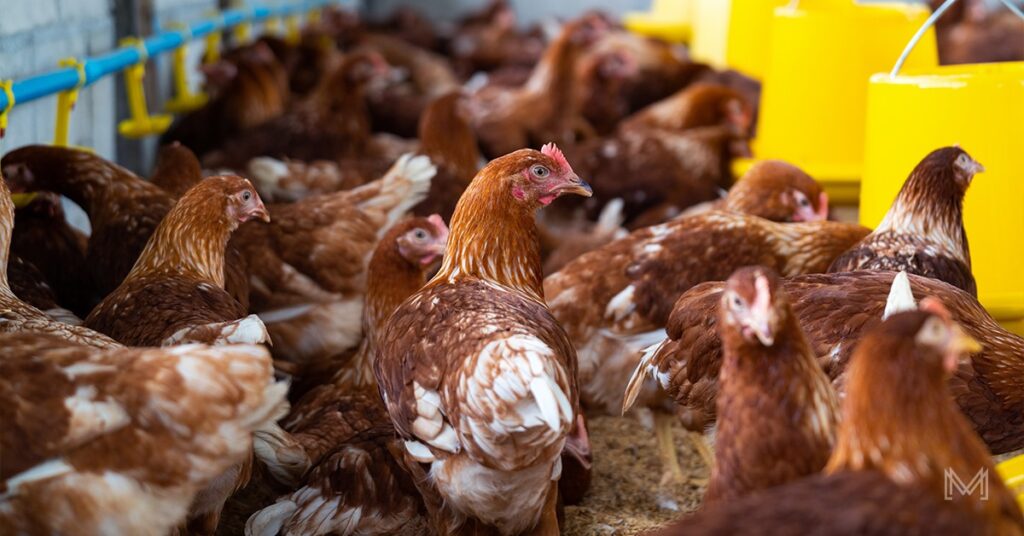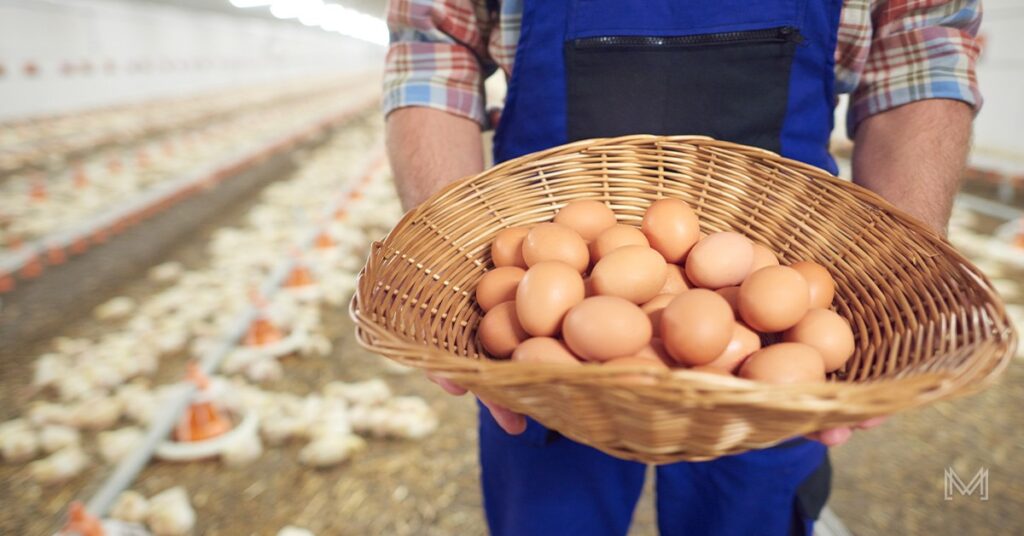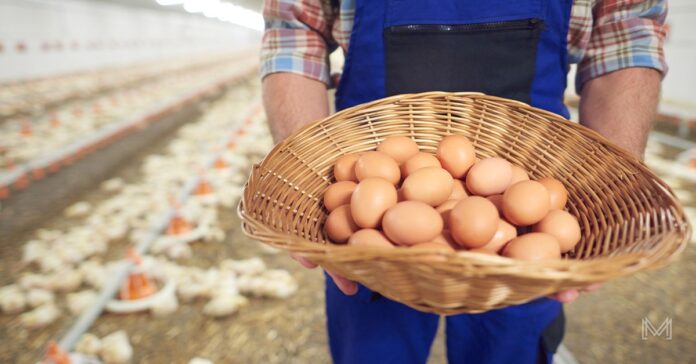Start Poultry Farming Business: Backyard to Big Business Guide
This is a comprehensive guide to start a poultry farming business, starting in your backyard, and growing to generate millions of dollars. Poultry farming business has become a highly successful and lucrative economic enterprise due to the growing global demand for poultry products. Nevertheless, a passion for hens is not the only thing that is necessary to establish a prosperous poultry farm.
A comprehensive awareness of the market, meticulous planning, and strategic investment are all required for this endeavor. This thorough book will equip you with the necessary information and resources to establish your poultry farming business. This guide will help you write a winning business plan, comprehend market analysis, and grow sustainably.
Turning your passion for poultry into a thriving business is achievable with the right knowledge and a solid plan.
Choosing the Path Your Poultry-Farming Career Will Take
To begin this journey, determine your primary focus. Do you have an interest in keeping chickens for the purpose of producing meat (layers), eggs (broilers), or both? Every route comes with its own set of potential obstacles and opportunities. When making this important decision, consider your resources, space, and target market.

Having a strategy for your poultry farming business is crucial.
Building your poultry farming endeavors around a strong business strategy is crucial. The plan serves as your road map, directing you through each and every stage of your endeavor. This document elaborates on your objectives, financial estimates, marketing plans, and operating procedures.
The components that make up a successful poultry farming business plan include the following:
This section’s “Company Description” section contains information about your farm’s location, size, chicken breed choices, and operational model.
- Executive Summary: a brief overview of your company, your target market, and your primary goals.
- Market analysis includes conducting research on current market trends, studying competitors, and determining potential customer segments (such as restaurants, supermarkets, and individual customers).
- Your marketing plan should include an outline of your plans for reaching your target market, as well as your pricing and advertising strategies.
- The financial projections include detailed cost estimates for housing, feed, chicks, labor, utilities, and other operating expenses. Furthermore, incorporate revenue forecasts that are dependent on the production model and market pricing you have chosen.
- The Management Team section includes a description of your experience, talents, and knowledge in poultry farming, along with specifics about the team you wish to hire.
- Risk analysis is the process of identifying prospective problems and dangers, such as the incidence of disease outbreaks, fluctuations in market prices, and changes in the climate.
Create a comprehensive budget that outlines your start-up costs, operational expenses, and predicted revenue. This is the first step in the financial projection process. In order to obtain loans or attract investors, this will be of the utmost importance.

Establishing the Appropriate Breed of Poultry
The breed you choose will greatly affect your success. Here’s a crucial list of factors to consider:
Do you intend to raise chickens in order to produce eggs or meat? Choose a breed that is well-known for having excellent production rates in the category that you are interested in.
Consider how rapidly you want your chickens to mature in order to produce meat. We call this the growth rate.
- Hardiness: Pick breeds known for disease resistance and climate adaptation.
- Egg Production: If you are interested in starting an egg production business, choose breeds that are well-known for their reliable laying and high-quality eggs.
Choosing a Location and Setting Up
Your farm’s positioning is very important. Select a location that satisfies the following criteria:
- Accessibility: Make sure that transportation, delivery, and agricultural supplies are not difficult to obtain.
- Infrastructure: The category of utilities includes access to dependable water, power, and waste disposal services.
- Climate: Take into account the local climate and the potential impact it could have on the health of chickens.
- Zoning: Determine whether the chosen area allows for poultry farming.
Management of Poultry Housing and Facilities
Your poultry’s housing must meet certain standards for their health and well-being:
- Dimensions and Density: Make sure there is sufficient room for birds to walk about freely, and be careful not to overcrowd them.
- Ventilation: Having adequate ventilation is essential for lowering the risk of disease and preserving the quality of the air.
- Lighting: To achieve optimal egg production or broiler growth, ensure that optimal lighting is provided.
- Hygiene: In order to reduce the likelihood of illness outbreaks, it is important to adhere to stringent hygiene measures.
- Biosecurity: In order to prevent the spread of illnesses, it is important to implement stringent biosecurity requirements.
Feeding and nutritional needs
High-quality feed is essential for chicken health and production.
- Dietary Balance: It is important to provide a diet that is nutritionally sound and contains the appropriate amounts of protein, carbs, vitamins, and minerals.
- Feed types: Consider your poultry’s age, breed, and production objectives when determining the right feed types.
- Water availability: Ensure a consistent supply of clean water for drinking and sanitation.
Disease management and prevention
It is of the utmost importance to protect your flock from infections.
- Vaccination: We should implement a vaccination program to prevent common diseases that affect poultry.
Maintaining stringent biosecurity measures is imperative to prevent the spread of illnesses.
When checking your flock for any signs of disease, it is important to be cautious in order to detect it early.
- Consult with veterinarians: Establish a working relationship with a veterinarian who specializes in poultry health.
From choosing the right chicken breed to ethical farming practices, every step contributes to a successful and fulfilling poultry farming journey.
Advertising and commercialisation
If you want to reach your target clients and develop a strong presence in the market, you really need to have a comprehensive marketing plan.
Identifying your target market means determining who your potential customers are. Restaurants, grocery stores, individual customers, or specialist marketplaces could be the target audience.
Create a brand identity that emphasizes the quality of your poultry goods, as well as the distinctive selling qualities that set them apart from the competition.
- Price: Conduct research on the current market prices and devise competitive pricing strategies.
- Distribution Channels: In order to effectively communicate with your clientele, you should establish distribution channels.
Management of Financial Resources
Keeping your finances in order is absolutely necessary to ensure your long-term viability.
- Create a detailed budget that outlines your start-up expenditures, operational expenses, and predicted revenue. This is the first step in developing a detailed budget.
- Keeping accurate records: Make sure that you keep accurate records of all of your earnings and expenditures.
- Create a financial plan that specifies both your short-term and long-term objectives. This is the basis of your financial planning.
- Make sure to follow all tax regulations to maintain tax compliance.
Questions about ethical and environmental considerations
- Environment: Use environmentally responsible practices to reduce the impact that your farm has on the surrounding environment.
To ensure the health and well-being of your chickens, you need to adhere to ethical standards. This is an important aspect of animal welfare.
Developing acceptable waste management procedures for manure and other farm outputs comes under the purview of the waste management department.

Additional sources of information
- Government Agencies: If you are looking for poultry farming rules and resources, you should consult the government agencies in your area.
- If you are looking for direction and assistance, you should contact the agricultural extension services in your region.
- Associations for Poultry Farmers: Joining a poultry farming association allows you to network with other farmers and learn from their experiences.
- We recommend using web resources and forums specifically dedicated to poultry farming to obtain useful information.
It is a gratifying endeavor to begin a chicken farming business; nevertheless, it demands perseverance, careful planning, and a commitment to ethical and environmentally responsible methods throughout the entire process. You will be able to establish the foundation for a successful and profitable poultry farming operation by applying this all-encompassing guidance.
Free resources for poultry farming include:
- Download the template for a poultry farming business plan here: [Link to download]
- Flyer Design Template for Poultry Farms: [Please click here to download].
This guide provides a starting point, so keep that in mind. If you want to develop a successful chicken farming business, you should seek the advice of professionals, conduct extensive study, and modify these tactics to fit your own circumstances.
FAQs Starting a Poultry Farming Business
How much money can I make from a poultry farming business?
The profit potential in a poultry farming business varies greatly. It depends on factors like the scale of your operation (backyard vs. commercial), chosen poultry (layers for eggs or broilers for meat), production efficiency, market prices, and operating costs. With a solid business plan, efficient management, and a strong market, poultry farming can be quite profitable.
What are the essential steps to start a poultry farming business?
Launching a successful poultry farming business involves:
- Marketing & Sales: Identifying your target market and establishing sales channels (farmers markets, restaurants, direct-to-consumer).
- Research & Planning: Market analysis, creating a comprehensive business plan, securing funding.
- Legalities: Understanding local zoning regulations, obtaining necessary permits and licenses.
- Setup: Choosing a location, building or adapting housing, sourcing equipment (feeders, waterers, etc.).
- Chickens: Selecting the right breed for your goals (egg production, meat production, or dual-purpose).
- Management: Providing proper feed, clean water, healthcare, biosecurity measures, and waste management.
What are the biggest challenges in the poultry farming business?
Poultry farming has its share of challenges, including:
- Regulations: Staying compliant with regulations on animal welfare and food safety is essential.
- Disease outbreaks: Maintaining strict biosecurity and providing proper vaccination are crucial.
- Market fluctuations: Prices for poultry products can be volatile, impacting profitability.
- Competition: The poultry industry can be competitive, requiring effective marketing strategies.
Is a poultry farming business right for me?
Consider these factors to decide if poultry farming aligns with your goals:
- Resources: Have access to land, capital for startup costs, and time for daily operations.
- Passion for poultry: Enjoy working with birds and providing proper care.
- Business acumen: have skills in planning, financial management, and marketing.
- Hard work and dedication: Poultry farming requires daily commitment and problem-solving abilities.
Where can I find resources to help me start a poultry farming business?
Many resources offer guidance for aspiring poultry farmers:
- Experienced poultry farmers: Mentorship from established farmers can offer invaluable insights.
- Local agricultural extension offices: Offer free or low-cost workshops, advice, and resources.
- Poultry farming associations: Offer networking opportunities, industry updates, and educational materials.
- Online resources: Websites, forums, and online courses offer valuable information and support.

